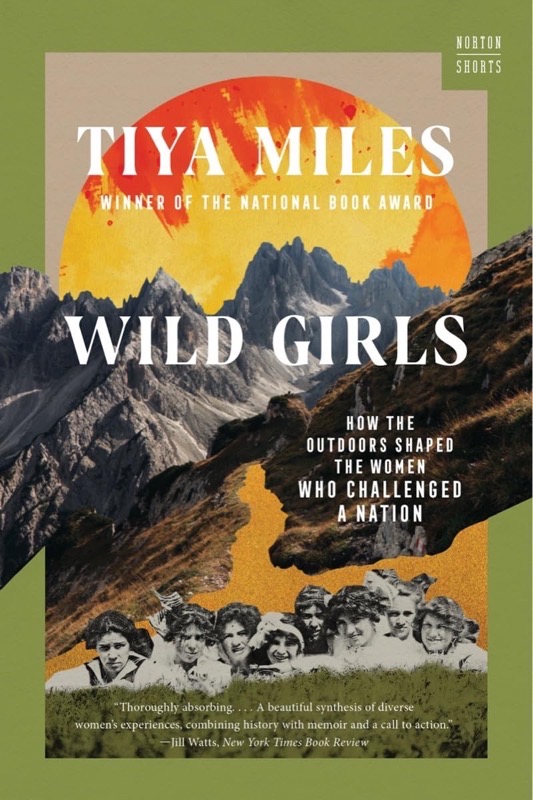As the semester winds toward the holiday season more time for reading opens up and I love finding new books to read – both fiction and non. My Thanksgiving read this week was Wild Girls: How the Outdoors Shaped the Women Who Challenged a Nation by Harvard professor Tiya Miles.
In this short book, she traces the way playing in the outdoors shaped the lives of several American activist women from Harriet Tubman to Louisa May Alcott to Native American writer Zitkála-ŠáNative/Gertrude Bonnin to Dolores Huerta. It added female names to my list of women to be remembered and reminded to get outside this holiday season and play in the dirt.
From the publisher…
Named a Best Nonfiction Book of the Year by Publishers Weekly
An award-winning historian shows how girls who found self-understanding in the natural world became women who changed America.
Harriet Tubman, forced to labor outdoors on a Maryland plantation, learned from the land a terrain for escape. Louisa May Alcott ran wild, eluding gendered expectations in New England. The Indigenous women’s basketball team from Fort Shaw, Montana, recaptured a sense of pride in physical prowess as they trounced the white teams of the 1904 World’s Fair. Celebrating women like these who acted on their confidence outdoors, Wild Girls brings new context to misunderstood icons like Sacagawea and Pocahontas, and to underappreciated figures like Native American activist writer Zitkála-Šá, also known as Gertrude Bonnin, farmworkers’ champion Dolores Huerta, and labor and Civil Rights organizer Grace Lee Boggs.
This beautiful, meditative work of history puts girls of all races—and the landscapes they loved—at center stage and reveals the impact of the outdoors on women’s independence, resourcefulness, and vision. For these trailblazing women of the nineteenth and early twentieth centuries, navigating the woods, following the stars, playing sports, and taking to the streets in peaceful protest were not only joyful pursuits, but also techniques to resist assimilation, racism, and sexism. Lyrically written and full of archival discoveries, Wild Girls evokes landscapes as richly as the girls who roamed in them—and argues for equal access to outdoor spaces for young women of every race and class today.
ABOUT THE AUTHOR
Tiya Miles is the Michael Garvey Professor of History at Harvard University, the author of five prize-winning works on the history of slavery and early American race relations, and a 2011 MacArthur Fellowship recipient. She was the founder and director of the Michigan-based ECO Girls program, and she is the author of the National Book Award–winning, New York Times best-selling All That She Carried. She lives in Cambridge, Massachusetts.

